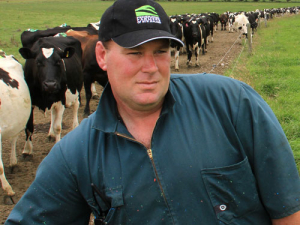The Government's recent announcement that it wants 90% of New Zealand’s lakes and rivers meeting swimmable water quality standards by 2040 has put the issue back into the limelight.
And when water quality becomes the focus, it’s the dairy sector that becomes the favourite punching bag of lobbyists.
Water quality has always been the big focus in NZ and most farmers are well aware of this.
And as Feds dairy president Andrew Hoggard puts it, “it is vitally important every farmer is doing the basics well here –waterways fenced and effluent well managed.” Going beyond that, it’s being aware and understanding what is the state of your local waterways, and what you could do about improving or safeguarding them.
One clear goal he says the industry and individual farmers should have is total prevention of harmful levels of faecal contaminants entering waterways. Most dairy farms are likely already very close to that, but it shouldn’t be a goal only for dairy farmers but for all.
Have we got our priorities right?
What we are concerned about in NZ environment-wise isn’t necessarily what the rest of the world is so concerned about.
Overseas more emphasis is placed on climate change and biodiversity. So dairy farmers here need to think what this might mean for the future.
Another issue hitting farmers is animal welfare.
Hoggard points out that despite the noise, we have a world leading regulatory framework. However, as competition gets tougher, when we trumpet our free range, pasture fed status, expect to get questions about shade and shelter, he says.
Then there is worldwide concern about antimicrobial resistance; greater emphasis will fall on the proper use of antibiotics in farming and, again, NZ is world leading in low use of antibiotics.
However, our customers won’t want to know just what the averages are, they will want to see best practice on all farms they buy from. Best practice means correctly identifying the illness, and treating with the appropriate drugs, and that critically important antibiotics are used only where first line treatments are not sufficient.
Hoggard questions whether every person onfarm in NZ, making treatment decisions on livestock, is well enough trained, formally or informally, about treatment choices; in the future that is likely going to need to change.











